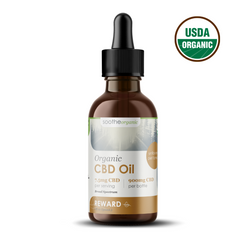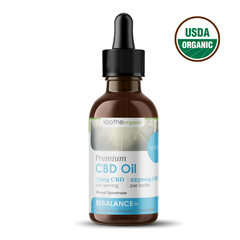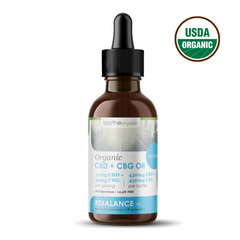Cannabinoids have gained popularity recently due to their potential to provide relief and wellness. These compounds are believed to interact with the endocannabinoid system, a complex network of receptors and enzymes that regulate various bodily functions.
Understanding how these receptors work and how to choose the right cannabinoids can help individuals find relief from pain, stress, and other ailments. Research on cannabinoids and their receptors is ongoing, with discoveries being made regularly.
The endocannabinoid system controls various functions, including appetite, stress levels, and sleep. Different individuals have varying densities of CB1 and CB2 receptors, affecting their sensitivity to cannabinoid supplementation.
By unlocking the potential of these receptors, individuals can experience relief and wellness, leading to a better quality of life. This article explores the science behind cannabinoid receptors and how they can provide liberation from various conditions.
Key Takeaways
- Cannabinoids and terpenes can help relieve physical discomfort, promote relaxation, and ensure overall wellness.
- The endocannabinoid system controls appetite, stress levels, and quality of sleep.
- CB1 receptors are in the central nervous system, brain, glands, connective tissues, and related organs. In contrast, CB2 receptors are in the immune system and organs such as the tonsils, spleen, and thymus gland.
- Different cannabinoids may be more beneficial for other individuals, and high-quality, organically-grown cannabis plants provide the most benefits for supplementation.
The Endocannabinoid System
The endocannabinoid system regulates various bodily functions such as appetite, stress levels, and sleep quality.
Additional cannabinoids such as THC and CBD can activate the endocannabinoid system by binding to CB1 and CB2 receptors in various body areas, such as the central nervous system, brain, glands, connective tissues, and immune system.

The prevalence and density of these receptors vary among individuals, influencing their sensitivity to cannabinoid supplementation.
Excessing or inhaling cannabinoids can relieve pain, stress, and muscle soreness. Research on cannabinoids and their receptors is ongoing, with the potential for discovering additional receptors in the body.
CB1 and CB2 Receptors
CB1 and CB2 receptors play a crucial role in the endocannabinoid system in various body regions by regulating physiological processes such as appetite, stress response, and immune function.
CB1 receptors are primarily located in the central nervous system, brain, and various organs such as the liver, lungs, and reproductive organs. They are responsible for mediating the psychoactive effects of THC, as well as regulating pain perception, mood, and memory.
CB2 receptors, on the other hand, are primarily located in the immune system and are involved in regulating inflammation, cell migration, and apoptosis. They are also present in organs such as the spleen, tonsils, and thymus gland, which play a role in immune function.
The distribution of CB1 and CB2 receptors varies among individuals, which may explain why people respond differently to cannabinoid supplementation. For example, individuals with higher CB1 receptor density in the brain may experience more substantial psychoactive effects from THC. In comparison, those with higher CB2 receptor density in peripheral tissues may experience more excellent anti-inflammatory effects from CBD.
Choosing the Right Cannabinoids
Understanding the distribution of CB1 and CB2 receptors in individuals is essential when choosing the right cannabinoids for targeted therapies. Different cannabinoids have varying affinities for CB1 and CB2 receptors, which affect their effectiveness and potential side effects.
By considering the specific properties and benefits of each cannabinoid, individuals can optimize therapeutic outcomes and minimize adverse reactions.
Here are some key considerations when choosing the right cannabinoids:
- THC is the most well-known cannabinoid for pain relief, nausea, and appetite stimulation. However, its psychoactive effects can cause drowsiness, anxiety, or paranoia in some individuals.
- CBD: CBD is non-intoxicating and can help promote a good night's sleep, ensure overall wellness, relieve physical discomfort, and encourage a healthy inflammatory response.

By understanding how cannabinoids interact with CB1 and CB2 receptors, individuals can unlock the full potential of cannabis for relief and wellness.
Frequently Asked Questions
What are some potential risks associated with supplementing with cannabinoids?
Supplementing with cannabinoids may have potential risks, including side effects such as dizziness, dry mouth, and changes in appetite. In some cases, high doses of THC can also lead to anxiety and paranoia.
Additionally, interactions with other medications, such as blood thinners, may lead to adverse effects.
Pregnant or breastfeeding women should also avoid cannabinoid supplementation, as it may cause harm to the developing fetus or infant. Although research on the long-term effects of cannabinoids is limited, consulting with a healthcare professional before beginning supplementation is essential to ensure safety and effectiveness.
Can cannabinoids be addictive?
Cannabinoids, notably THC, can have addictive properties. THC activates the brain’s reward system, leading to feelings of pleasure and euphoria, which can lead to repeated use and eventual dependence.
However, not all individuals who use cannabinoids become addicted, and the risk of addiction may vary based on genetics, environment, and frequency of use. Additionally, CBD and other non-intoxicating cannabinoids do not have addictive properties.
It is essential to use cannabinoids responsibly and under the guidance of a healthcare professional to minimize the risk of addiction.
How do genetics play a role in an individual’s sensitivity to cannabinoids?
Genetics plays a crucial role in an individual’s sensitivity to cannabinoids. The prevalence and density of CB1 and CB2 receptors vary among individuals, affecting their response to cannabinoid supplementation.
Different cannabinoids may benefit individuals, such as THC for severe physical discomfort and CBC for longer-lasting effects. Moreover, the body naturally contains cannabinoids, and additional cannabinoids can be ingested or inhaled to activate the receptors.
Therefore, understanding an individual’s genetics can help determine the proper cannabinoid supplementation. However, research is still ongoing, and further studies are necessary to assess the impact of genetics on cannabinoid sensitivity.
Are there any drug interactions to be aware of when using cannabinoids?
There are potential drug interactions to be aware of when using cannabinoids.
Cannabinoids may interact with medications that affect the central nervous system, such as sedatives and opioids, potentially increasing the risk of side effects such as drowsiness and respiratory depression.
Cannabinoids may also interact with medications metabolized by liver enzymes, potentially increasing or decreasing their effectiveness.
It is essential to consult with a healthcare provider before using cannabinoids, especially if taking other medications, to ensure safe and effective use.
Additionally, it is essential to use high-quality products tested for purity and potency to avoid potential interactions with contaminants or unknown substances.
How do terpenes interact with cannabinoids to provide medicinal benefits?
Terpenes are organic compounds in plants, including cannabis that provide unique flavors and aromas.
They interact with cannabinoids, such as THC and CBD, to enhance their medicinal benefits through the entourage effect.
Further research is needed to fully understand the mechanisms of how terpenes and cannabinoids interact, but current studies suggest that they work together to provide a more significant therapeutic effect.
Organic sleep gummies, CBD mood swings, CBD sleep apnea, CBD stores casper wy, CBD casper wy, sleep gummies, cbd softgels, organic cbd salve, delta 9 gummies, best delta 9 gummies, thcv gummies, cbd gummies for anxiety, USDA organic CBD, gummies for sleep, best CBD oil for pain, CBD softgels 25mg, best CBD oil for dogs, delta 9 gummies near me, CBD oil Wyoming, Wyoming CBD gummies, CBD energy drink, best sleep gummies, best THCv gummies, focus gummies, 1000mg CBD, 750mg gummies, muscle rub, CBD cream 1000mg, healing salve, CBG tincture, Organic sleep gummies, strongest CBD gummies, gummies for sleep, best sleep gummies, sleep gummies for adults, nano CBD, nano CBD softgels, full spectrum, CBD for muscle recovery, CBD for better sleep, is CBD legal in Wyoming, best CBD Casper, CBD gummies Casper, THCv gummies Casper, CBD tinctures Wyoming, delta 9 gummies Wyoming, best CBD softgels Wyoming, CBD oil Casper Wyoming, Casper CBD store, CBD gummies Casper, CBD tinctures Casper, Hemp-derived CBD Casper, CBD products in Casper, Best CBD shop Casper, CBD capsules Casper Wyoming, Casper CBD hemp products, CBD for sale Casper, Wyoming Weed Laws, CBD Sports Cream, CBD Casper WY, CBD Cheyenne, Can you buy cbd oil in Wyoming, CBD Wyoming, thcv gummies effects, Best cbd for dogs,







